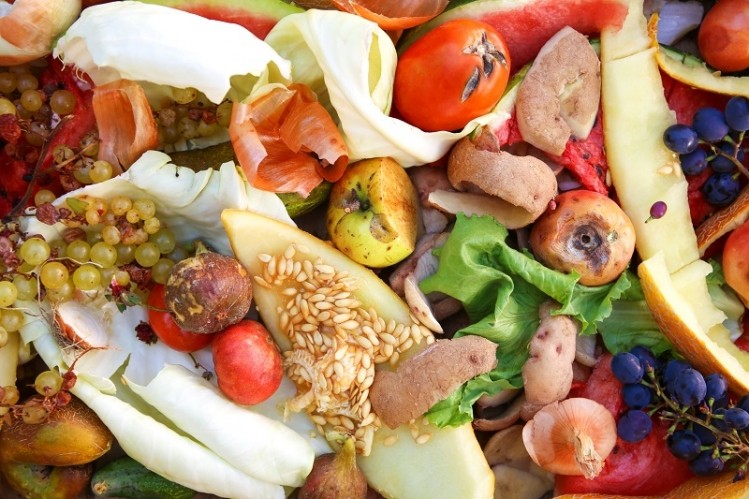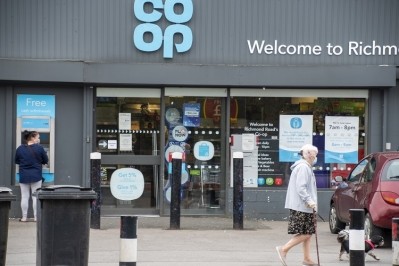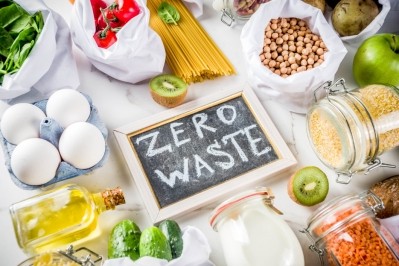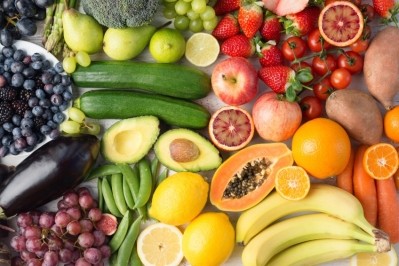Lockdowns ‘risk exacerbating’ food waste

Pre-pandemic, at the end of 2019, restaurants reported wasting 9% of all food they purchased, costing individual businesses £111 every week, according to data compiled by the Sustainable Restaurant Association and Just Eat. While this report, from April, noted that almost three quarters of takeaway operators were making a conscious effort to reduce food waste, it warned that since the outbreak of COVID-19, food supply chains had been upended, causing takeaways to throw away £148 worth of food per week. This cost the entire sector a ‘staggering’ £16.7 million during lockdown, the report said.
With new restrictions being introduced in the UK it is feared the problem could worsen, which brings both environmental and financial ramifications.
Mark Hall from BusinessWaste.co.uk said: “As businesses in the hospitality industry have scheduled food orders for the coming weeks and are now facing closures, there is a mountain of food that is now set to go to landfill if it cannot be used or donated to food banks. This in turn also results in losses for hospitality businesses.”
The waste management company estimates food waste generated by Britain’s hospitality sector each year amounts to as much as 920,000 tonnes, of which 75% is avoidable if not put in landfill where it can emit harmful greenhouse gases.
The food waste charity WRAP said the latest changes in lockdown rules “will inevitably cause disruption and require business to adapt in many ways”.
WRAP offers a plethora of advice to businesses on ways to deal with food that cannot be served, including tools to measure and track wasted food and online learning courses.
“We work with government and businesses to reduce food waste, and that work has helped directly, for example producing new guidance on redistributing surplus food beyond the best before dates and the creation of a COVID-19 redistribution fund,” it said.
It added that despite the pressure it is under, the hospitality and food service sector has worked hard to find solutions to surplus redistribution, with apps such as Too Good To Go and Olio providing ways to redistribute food easily.
Will the food waste issue boost rising frozen sales?
With the latest statistics from Kantar showing frozen food sales have been enjoying a boost during the pandemic (with sales increasing by £221 million in the last three months), the British Frozen Food Federation (BFFF) is hoping rising concerns about food waste could further assist the frozen category.
It is urging grocery retailers to freeze seasonable produce in the run-up to Christmas to prevent food going to waste. It claims that every Christmas, a third of British consumers admit to throwing away more food than at any other time of year, leading to an estimated two million turkeys, 74 million mince pies and five million Christmas puddings ending up in the bin.
The trade association said coronavirus restrictions will likely mean fewer people than usual will be sitting down to Christmas dinner in many households, leading to a potential surge in food waste if people stock-up on short shelf life fresh and chilled products.
BFFF chief executive Richard Harrow said: “With coronavirus restrictions looking like they will remain fluid, grocery retailers are struggling to estimate the level of demand this Christmas and there is a good chance that many fresh turkeys, as well as veg and desserts may go to waste this year. By opting to sell and promote more frozen products, especially birds and crowns, supermarkets will be able to avoid a significant increase in food waste. Any excess turkeys can be offered for sale next Easter.”
Consumer concern growing
These warnings come amid growing awareness among consumers about food waste’s potential contribution to greenhouse gas emissions. For example, according to Princes Foods, a third of UK households have become greener since the start of lockdown, with many making greater efforts to recycle more, turn the lights off and swap baths for shorter showers. The research also found 27% of people have been cutting back on food waste, whilst 28% have been cooking from scratch and upcycling household items.
According to Bureau Veritas, which offers certification and training services for the food industry, there is a growing onus on food businesses to pay due diligence to their food waste mitigation measures – a trend which is only going to grow as the pandemic continues to put the issue of food security firmly up the public agenda.
“There is no doubt that the coronavirus pandemic has brought the worldwide issue of food wastage more widely into the public domain,” said Tracy Wain, Food Safety Technical Manager at Bureau Veritas.
“Indeed, following the initial urge to stockpile supermarket goods, it would seem that it has made consumers much more aware of the importance of food security and the role they can play in lessening wastage. In turn, in the commercial world, it’s coerced a shift to a much more robust, leaner approach to the supply chain in order to negate the issue of surplus stock and food wastage.
“Thus, with food wastage clearly under the magnifying glass, it has never been a greater time for food businesses to invest in a holistic, robust food wastage strategy so that they can demonstrate and validate their efforts to reduce food waste.”
Most food waste comes from our homes
WRAP, however, still believes consumers are not as engaged with the problem of food waste as it would like. It estimates that while 81% of people in the UK are concerned about climate change, fewer than 30% can see a clear link with wasting food.
WRAP has launched a new campaign aimed at driving home the message that wasting food has a huge impact on climate change. It claims in the UK, 9.5 million tonnes of food are wasted every year; 70% of this comes from our homes. Of that, 4.5 million tonnes could have been eaten.
The foods most wasted in the home, according to WRAP:
- Bread waste in UK homes generates 318,000 tonnes of CO2 annually – the same as 140,000 cars. If we all stopped wasting bread at home for one year, it would have the same impact on CO2e as planting over five million trees.
- Bananas are one of the most wasted fruits in UK homes. It takes 3,000 hectares to grow the bananas we waste every year. Every day in the UK, 920,000 bananas are wasted using up 330 billion litres of water to grow annually.


















